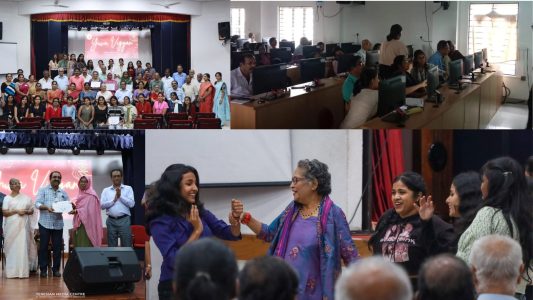Bridging the Digital Divide: Intergenerational Learning



Kochi’s Yuva Vigyan program exemplifies a best practice in fostering age-friendly cities: intergenerational learning. This initiative tackles the digital divide by empowering college students to become tech teachers for older persons. However, Yuva Vigyan goes beyond simple instruction.
The program fosters a unique exchange. College students equip older persons with valuable computer skills, promoting continued learning and social connection. In turn, experienced professionals from the college faculty become mentors to the students, offering guidance beyond the classroom.
But the learning doesn’t stop there. Following classes, students and older persons may interact informally, creating opportunities for knowledge exchange in both directions. Older persons, with their life experiences and wisdom, can mentor students, fostering a sense of community and mutual respect.
Yuva Vigyan’s brilliance lies in its ability to address multiple needs within an age-friendly framework. Older persons gain valuable digital literacy, while students develop teaching skills and gain valuable insights from those with significant life experience. This program fosters social connections, combats isolation, and promotes lifelong learning for all participants, making it a powerful model for other communities looking to bridge the digital divide and create a more inclusive society.
Website: https://www.agefriendlykochi.com/yuva-vigyan
Main target group: Both younger and older people (i.e. intergenerational)
Sector(s): Education, Information and communication
Other sector(s): Civic Participation and Employment; Respect and Social Inclusion; Social Participation
Desired outcome for older people:
Learn, grow and make decisions